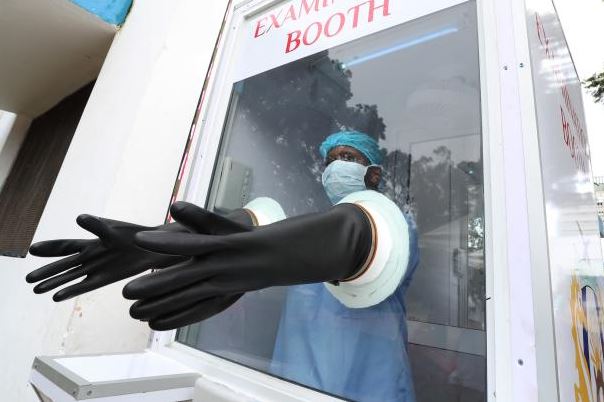
If it was not for coronavirus and travel restrictions, David Makumi would have gone to the UK last month to receive one of the most coveted distinctions in the nursing profession.
He was the only African who made it to the list of nurses being recognised by the International Society of Nurses in Cancer care for helping in reducing cancer burden.
Makumi is an oncology nurse and vice president of the Kenya Cancer Association.
“When you get such a distinction, you realise that nursing is worth it. We rarely get recognised, but what nurses and their patients have is a deep relationship. You touch people at their most vulnerable point, and care for them until they get their strength back,” Makumi says.
As the global week to recognise nurses came to a close on Tuesday, nurses went to different platforms to celebrate some of their colleagues who are making a difference in the field.
Passion for the job
Last year, Veronica Muthoni, 39, was awarded by the Nakuru County government for her exemplary performance. Among the 1,200 nurses in the county, she was recognised as the best. She has been a nurse for 12 years, and she says what drives her is passion for the job, and knowing that she is making a difference.
“I feel pain whenever I hear a mother has died during childbirth or lost her baby. These are deaths that can be prevented through safe deliveries in hospitals,” Muthoni says.
She describes nursing as a job in which one has to keep giving. Her day is defined by many hours at the health facility, and at times has to make home visits, especially when caring for the elderly.
She coordinates boda boda riders to transport the sick to health centres. If the patients live in remote parts, they are ferried in ambulances.
“I receive phone calls of sick patients who cannot come to hospitals. I therefore keep contacts of motorcycle riders to help provide services,” she says.
Patrick Njilo, a boda boda operator at Kiptagwany trading centre is among those who ferry patients to hospitals. He is full of praise for Muthoni.
“She is dedicated to her work and that is why I must always respond even when she calls at night,” Njilo says.
Joyce Njagi, a palliative care nurse who works with critically ill patients says nursing is a calling.
“I get critically ill patients, and some of them are giving up. My job is to keep telling them that I am there for them, and I believe they will get better,” she says.
Changing of wound dressing, emptying bed pans, turning a patient over to prevent bed sores, helping them sit up and sometimes feeding them when they do not have strength to lift their hands are some of the things that fall on the nurses’ duty list.
Irene Anyango, who cares for HIV and tuberculosis patients says since they are in close contact with the patients, they have to take all the necessary precautions to be safe.
“Doctors rarely see the patients. It is nurses who do most of the work. I teach my patients to protect themselves from further exposure,” she says.
Covid-19 pandemic has made nurses’ work more complex.
Kenya National Union of Nurses (KNUN) secretary general Seth Panyako says nurses have had to work for long hours to deal with the Covid-19 cases, and even those who are not on the frontline have to take up extra shifts.
Long journey
“Nurses have to keep checking on those who are in isolation. They do it after every few hours,” he says, adding that they have been fighting to have personal protective equipment (PPE) for all nurses.
The journey to giving nurses better working conditions has been fraught with tears, strikes, intimidation, sackings with some giving up altogether. “It has been long. It has been hard. But it is worth fighting for people whose role has been ignored for so long,” Panyako says.
He adds that there is still a misconception that nurses should be less educated, and there has been hesitation by institutions, including the government, to employ nurses with higher diploma or degrees.
“Nurses are unstoppable. We now have nurses pursuing PhDs,” he says.
 The Standard Group Plc is a multi-media organization with investments in media platforms spanning newspaper print
operations, television, radio broadcasting, digital and online services. The Standard Group is recognized as a
leading multi-media house in Kenya with a key influence in matters of national and international interest.
The Standard Group Plc is a multi-media organization with investments in media platforms spanning newspaper print
operations, television, radio broadcasting, digital and online services. The Standard Group is recognized as a
leading multi-media house in Kenya with a key influence in matters of national and international interest.











